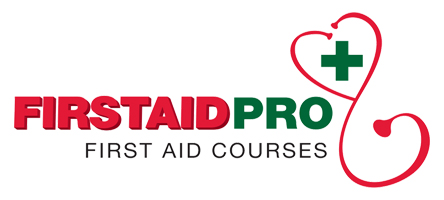February is designated as Heart Month to raise awareness about the importance of heart health and preventing heart disease.
There are many things that can raise your risk for heart disease, which are called ‘risk factors’. Some of them you cannot control, but there are many that you can prevent by following precautions.
Learning about these risk factors and preventative tips can help improve heart health and prevent heart disease.
February Is Heart Health Month
February is Heart Month, which is a time dedicated to raising awareness about the importance of heart health and the prevention of heart disease.
Heart disease is one of the leading causes of death in Australia and around the world, making it crucial to prioritise heart health on a regular basis, not just in February.
The heart is a vital organ responsible for pumping blood throughout the body and delivering essential oxygen and nutrients to our cells. When the heart is not functioning properly, it can lead to a range of serious health problems, including heart attack, stroke, and heart failure.
Many factors can contribute to the development of heart diseases, such as genetics, age, gender, and lifestyle factors. These include smoking, poor diet, lack of exercise, and high levels of stress.
This month, we have an opportunity to educate ourselves and others about the risk factors for heart disease and the impact that lifestyle choices can have on heart health.
Common Risk Factors Of Heart Disease
Here are some common risk factors for heart disease.
-
- High Blood Pressure: High blood pressure, also known as hypertension, can damage the arteries and put extra strain on the heart, increasing the risk of heart disease.
- High Cholesterol: High cholesterol levels in the blood can build up in the arteries and increase the risk of heart disease.
- Smoking: Smoking is a major risk factor for heart disease as it damages the arteries and increases the risk of heart attack and stroke.
- Diabetes: People with diabetes are at increased risk of heart disease, as the condition can lead to the development of fatty deposits in the arteries.
- Physical Inactivity: A sedentary lifestyle can increase the risk of heart disease by contributing to factors such as high blood pressure, high cholesterol, and obesity.
- Poor Diet: A diet high in saturated and trans fats, salt, and sugar can increase the risk of heart disease. These lead to complications such as high cholesterol and high blood pressure.
- Family History: A family history of heart disease can increase the risk of developing heart disease, especially if there is a strong history of heart disease in close relatives at a young age.
- Stress: Chronic stress can increase the risk of heart disease by affecting factors such as blood pressure, cholesterol levels, and lifestyle choices.
It is important to understand that these risk factors are not necessarily causes of heart disease, but rather, they increase the likelihood of developing heart disease.
By addressing these risk factors and making positive changes to our lifestyle, you can reduce the chances of having heart illness and improve overall heart health.
8 Tips To Prevent Heart Disease
Knowing the tips to prevent heart disease helps individuals make lifestyle changes that positively impact their heart health and potentially prevent the onset of heart disease.
These include the following:
Maintain A Healthy Diet
Eating balanced, healthy diet rich in fruits, vegetables, whole grains, lean protein sources, and food choices low in saturated and trans fats can help lower the risk of heart disease.
Exercise Regularly
Engaging in regular physical activity, such as brisk walking, jogging, cycling, or swimming, can help keep the heart healthy and prevent heart problems.
Avoid Smoking
Smoking is a major risk factor for heart disease, and quitting smoking can significantly reduce the risk of developing heart disease.
Manage Stress
Long-term or chronic stress can increase the risk of heart disease. To avoid one, it is important to find healthy ways to manage stress, such as through meditation, yoga, or deep breathing exercises.
Control Blood Pressure
High blood pressure (HBP) is a major risk factor for heart disease. Luckily, you can manage blood pressure through lifestyle changes, having regular checkups, taking prescribed medications, and working with a healthcare provider.
Monitor Cholesterol Levels
To monitor cholesterol levels to prevent heart disease, it is recommended to have regular cholesterol tests, typically once every five years or as advised by your healthcare provider.
If test results indicate elevated cholesterol levels, your healthcare provider may prescribe medication or make lifestyle recommendations to help lower your risk.
Limit Alcohol Consumption
Excessive alcohol intake can increase the risk of heart disease. To prevent such, it is important to limit alcohol consumption to no more than one drink per day for women and two drinks per day for men.
Get Enough Sleep
Lack of sleep can increase the risk of heart disease. To get enough rest, have at least 7 hours of sleep per night and maintain a consistent sleep schedule.
It is important to note that maintaining a healthy lifestyle, including the tips above, can significantly promote overall heart health.
Monitoring of personal risk factors also plays an important step in reducing the risk of heart disease.
Learn First Aid
Learning first aid is important to improve heart health and prevent heart disease because it can help individuals respond quickly and effectively in an emergency situation. This is particularly true for cardiac emergencies, such as heart attacks, sudden cardiac arrest, and chest pain, which require immediate attention.
In addition, learning first aid can help individuals recognise the signs and symptoms of heart disease, such as chest pain, shortness of breath, and heart palpitations. By understanding these symptoms and knowing how to respond, individuals can seek prompt medical attention and avoid further complications.
By making positive changes to our lifestyle and learning first aid, we can help reduce our risk of heart disease and improve our overall heart health.
Interested in getting trained? Check out Brisbane First Aid Courses upcoming courses near you!








